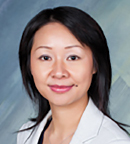
Lili Yang, PhD
With new funding awarded by the California Institute for Regenerative Medicine (CIRM), Lili Yang, PhD, Assistant Professor in the Department of Microbiology, Immunology & Molecular Genetics and the Eli & Edythe Broad Center of Regenerative Medicine and Stem Cell Research (BSCRC) at the University of California, Los Angeles (UCLA), hopes to engineer the body’s immune system to give it the ability to attack and kill cancerous cells while leaving the body’s healthy tissues unharmed.
Dr. Yang’s grant of $7,659,309 is the largest of the seven awards funded by CIRM’s governing Board on March 16, 2016, under the 2.0 Translation Program. This program supports projects that will be ready for entering clinical trials in 30 months.
Underlying Theory
The novel approach genetically modifies blood-forming hematopoietic stem cells to create specialized cells that have the capacity to kill cancer tumor cells. Hematopoietic stem cells create every type of blood cell in the body, including T cells. Among these T cells is a much smaller group of powerful cells called “invariant natural killer T cells” (or iNKT), which have the capacity to immediately respond to diseases and are important to the immune system’s regulation of cancer, infections, allergies, and autoimmune diseases. One drop of human blood contains around 10 million total blood cells, about 5,000 T cells, and only around 10 iNKT cells; cancer patients typically have even fewer iNKT cells.
Dr. Yang’s CIRM-funded research seeks to modify cancer patients’ own hematopoietic stem cells to create an increased number of iNKT cells once transplanted back into the patients. This new stem cell–based iNKT cell therapy could potentially provide cancer patients with lifelong therapeutic levels of iNKT cells needed to fight the disease.
The grant team consists of 15 scientists and clinicians from a wide variety of disciplines at UCLA.
The initial work that led to the novel concept of stem cell–based iNKT cell therapy was funded by a CIRM Basic Biology V Exploratory Concepts Award and a National Institutes of Health (NIH) Director’s New Innovator Award (DP2)—both received by Dr. Yang in 2014. Additional funding that supported Dr. Yang’s initial therapeutic concept included a UCLA Broad Stem Cell Research Center-Concern Foundation Research Award and a SPORE in Prostate Cancer Career Development Award from the NIH. ■

